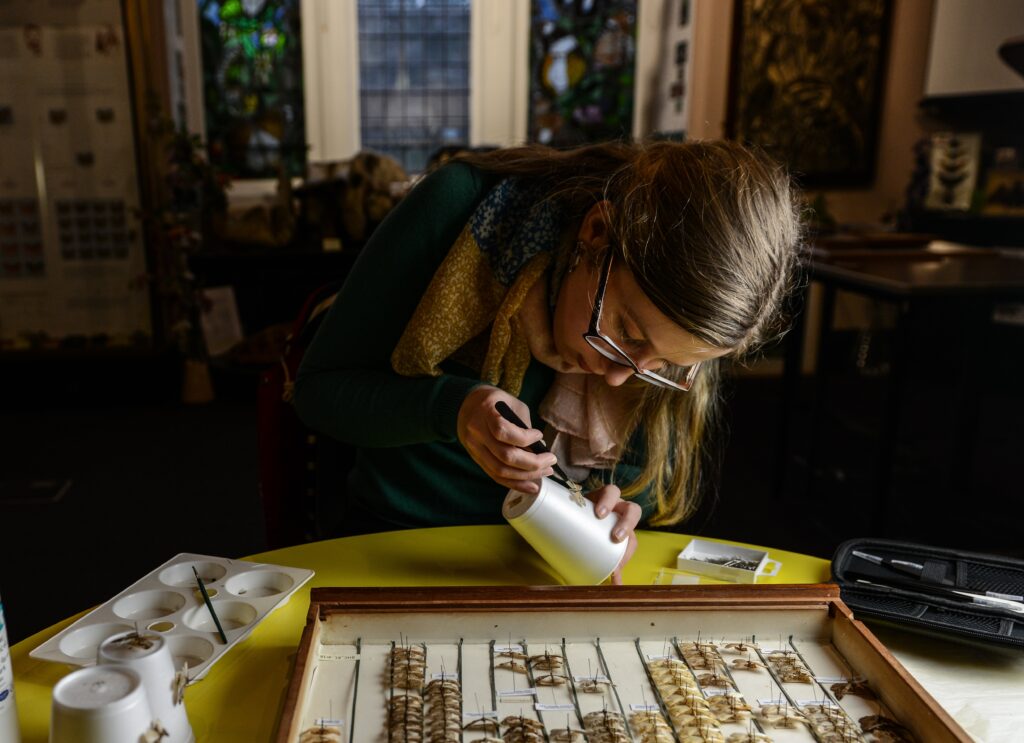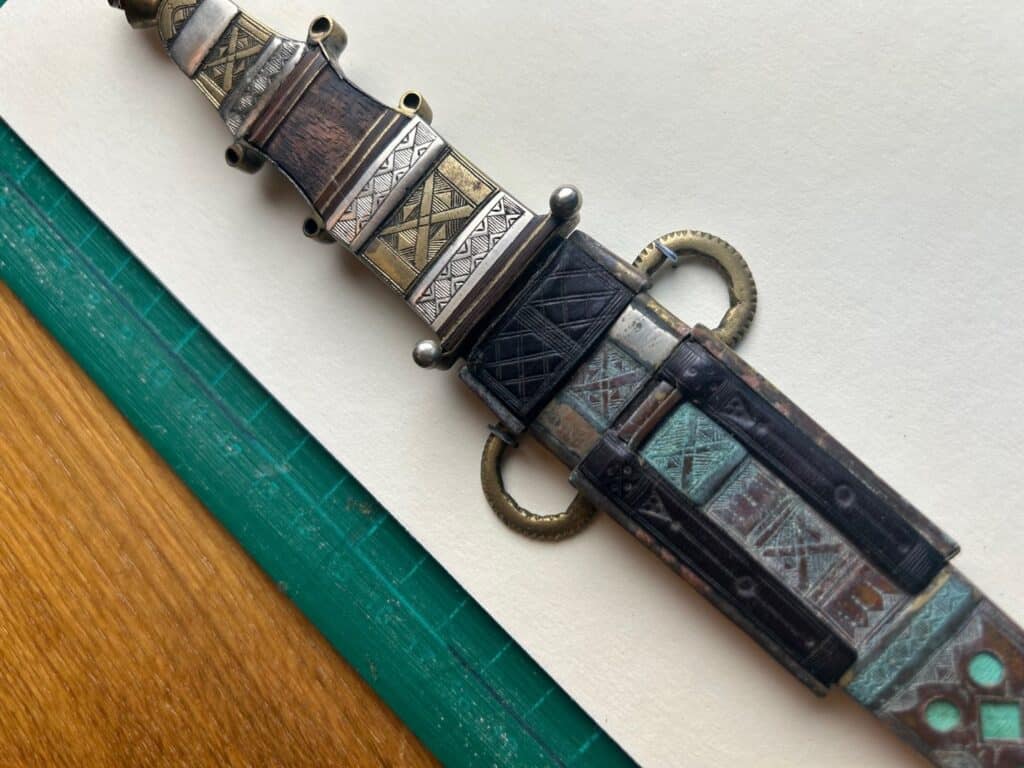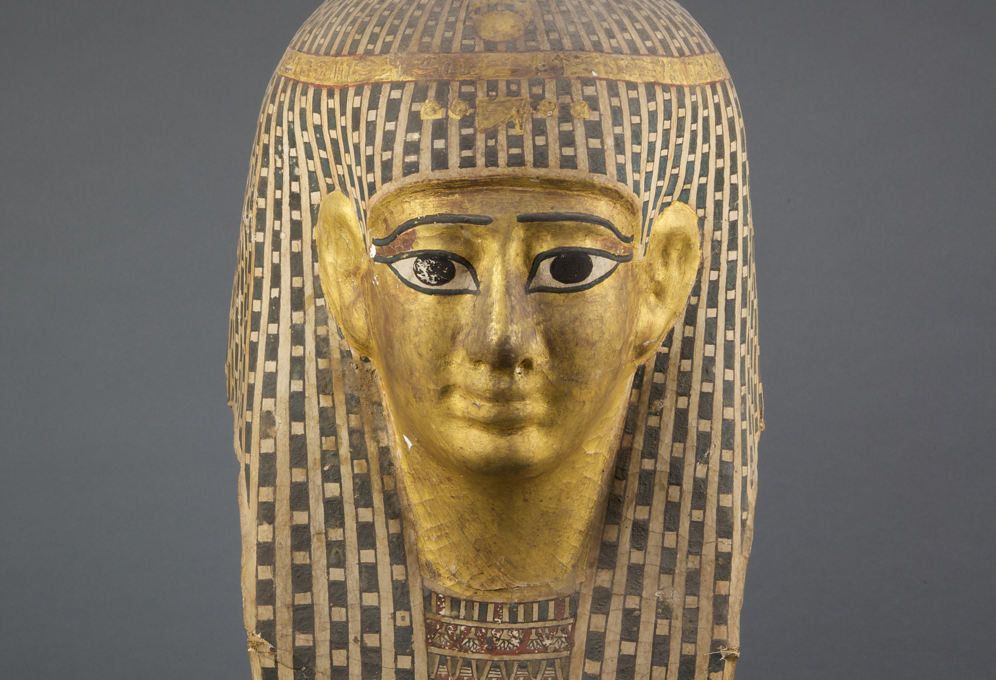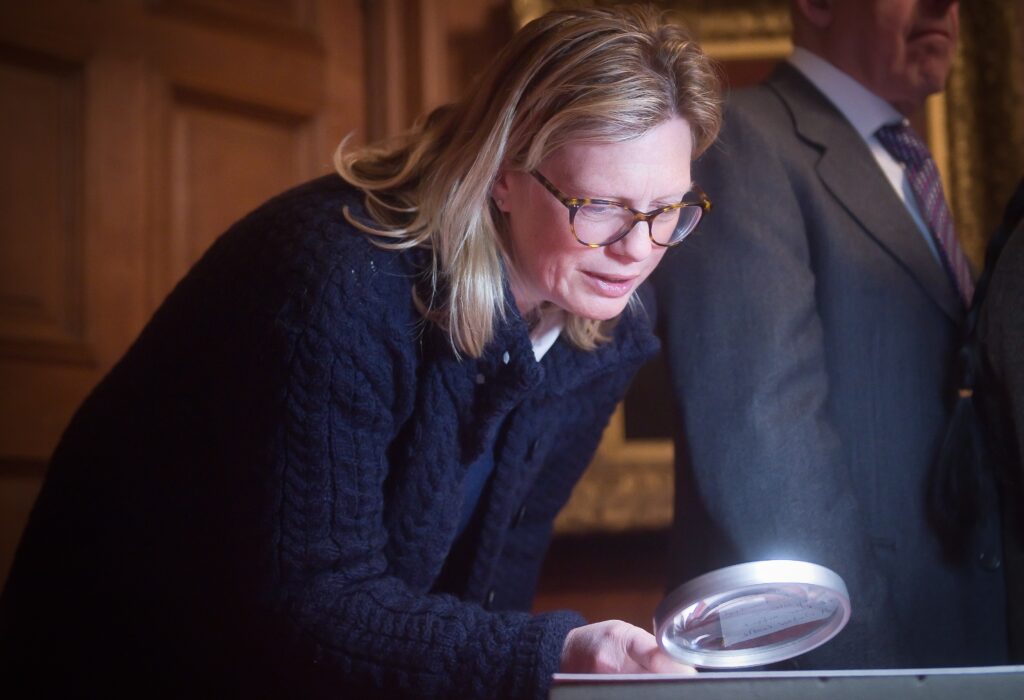We care for a wide range of objects in the collections through both preventive and remedial conservation. Many objects in the collections play a part in the day-to-day life of the college, and we aim to allow items to continue to be used wherever possible, while preserving their integrity for future generations. We also ensure that objects are safely displayed, stored and transported.
Preventive conservation is a long-term multi-faceted programme that aims to prolong the life of objects in the collections and reduces the need for interventive treatment. We do this through environment monitoring, integrated pest management, housekeeping and assessing the condition of the collection. When necessary we apply remedial conservation, and treatments take place.
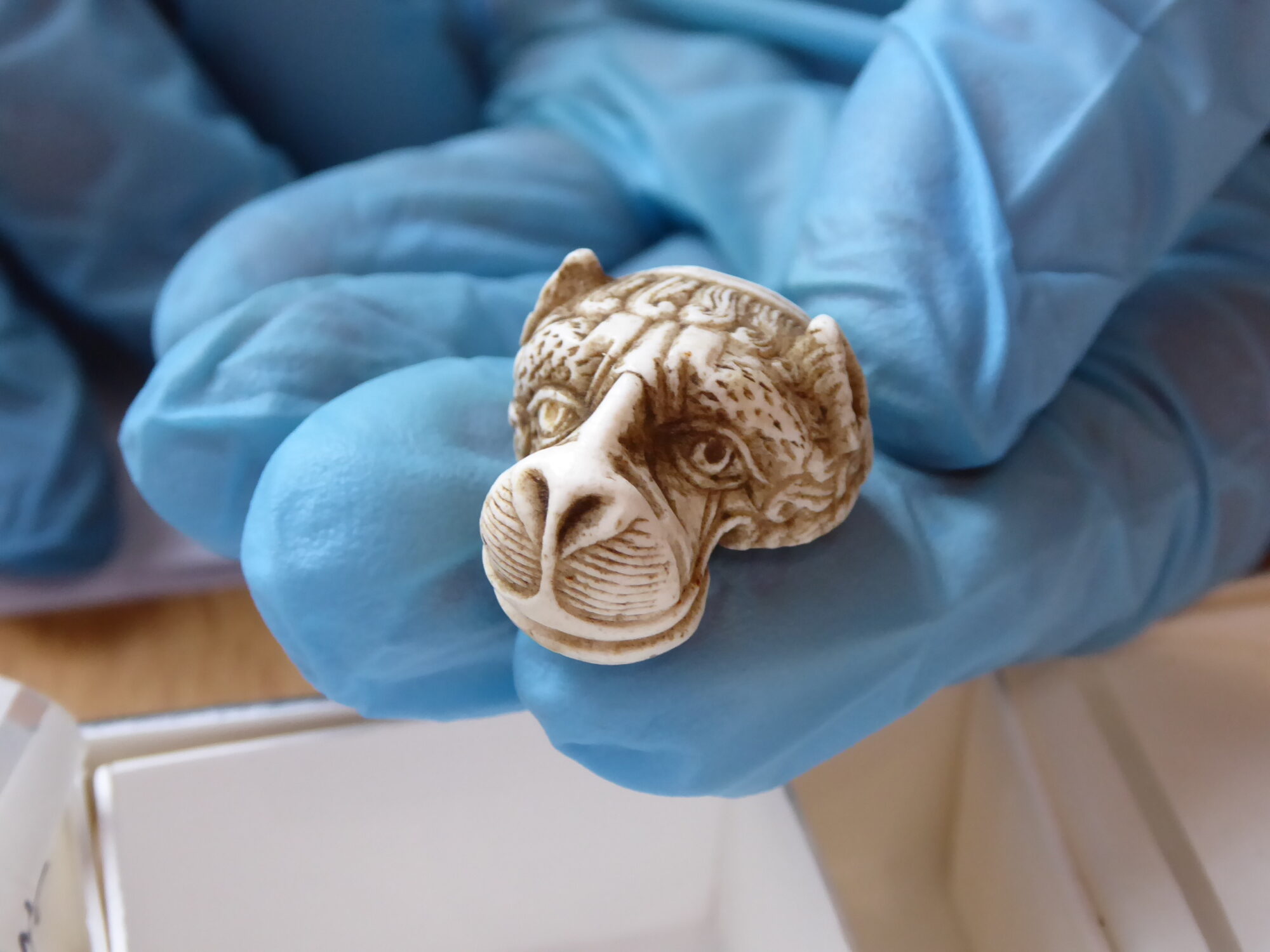
collection items underwent remedial conservation last year
Preserving the Collections
Environment monitoring
This allows better understanding of our collection spaces and enables us to make necessary changes to ensure the long-term stability of the objects.
Integrated pest management
Pests are a major threat to collections and the damage that they can inflict on objects should not be underestimated. In order to make sure that there are no infestations or threats to any collection, pest traps are strategically placed in the spaces that house the collections and are regularly inspected.
Housekeeping
Keeping an historic collection clean can be challenging, especially when it is held in spaces that are in regular use. We use conservation-grade cleaning supplies and have a dedicated cleaning team for the historic areas of the college. The conservation team also undertake cleaning projects and liaise with external specialists.
Assessing condition
We inspect and document the condition of the collections. We search for signs of damage, deterioration or alteration. This allows us to plan for their storage and display, as well as for treatment or transportation, when necessary.
Remedial conservation
Remedial conservation consists of working directly to stabilise an object and slow down its deterioration. We apply general principles of conservation, which include minimum intervention, reversibility and re-treatability. Conservation treatments are carried out here by the conservation staff on site and also by commissioning treatment specialists.
